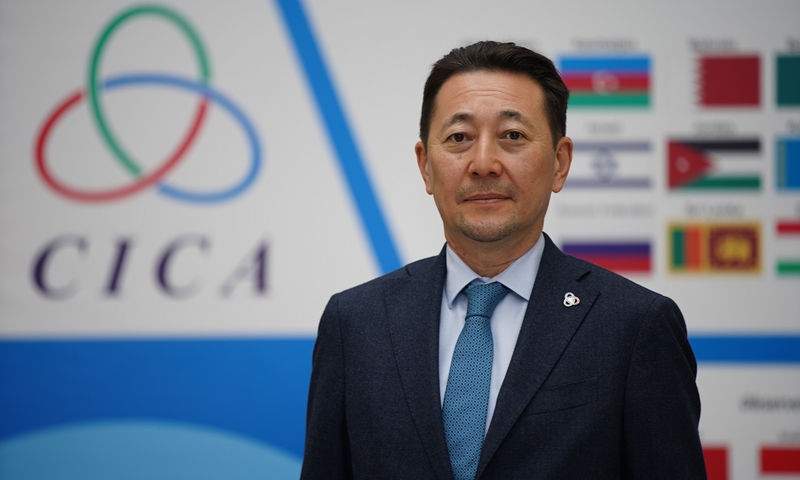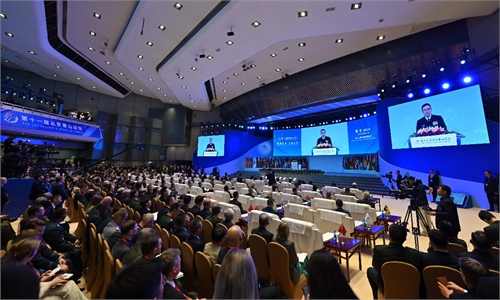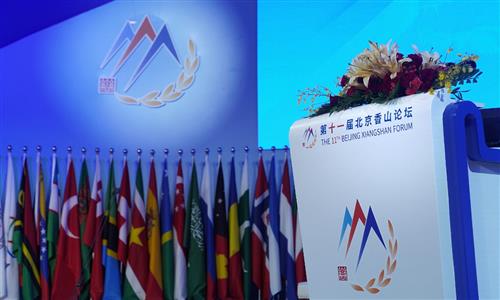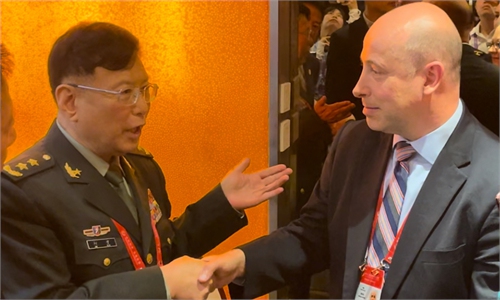The way to address security challenges is outlined in GSI: CICA secretary general

Kairat Sarybay Photo: Courtesy of Sarybay
Editor's Note:In a world mired by emerging tensions and uncertainties, what could be the way out? Kairat Sarybay (Sarybay), secretary general of the Conference on Interaction and Confidence Building Measures in Asia (CICA), shared his views with Global Times (GT) reporters Li Aixin and Zhang Yashu during the 11th Beijing Xiangshan Forum (BXF). The only way to address challenges we face today is through international cooperation based on consensus, inclusiveness, and the recognition of all partners as equals, he said.
GT: Since the Global Security Initiative (GSI) was proposed, what do you think are the major achievements of this initiative in promoting peace and stability?
Sarybay: It was mentioned during this 11th Beijing Xiangshan Forum by distinguished speakers that China has had great success in providing different initiatives including the GSI to ensure peace, or at least to reduce tensions.
I would like to mention it's quite important that China facilitated the establishment of normalization between Iran and Saudi Arabia. Recently, China also invited different factions from Palestine for dialogue and consultation in Beijing to ensure unity within Palestinian leadership. This is crucial for maintaining peaceful negotiations to resolve Middle East issues. China has been mediating in other regions as well. For instance, we know about some proposals to resolve the conflict in Ukraine.
I believe that the GSI is not just a declaration. It is also a roadmap and a set of principles for action. This initiative aligns closely with the objectives and goals of the CICA. We are talking about inclusiveness, consensus-based decisions, and genuine multilateralism. Therefore, I believe this initiative is both very useful and very timely.
What are our shared goals and values? Our aim is to live in peace and cooperate for better development. These noble goals are well reflected in international law, key agreements, and the UN Charter. The implementation of these principles is also crucial. As I mentioned earlier, China is committed to these principles and encourages open, inclusive dialogue. For instance, BRI marked its 10th anniversary last year and I participated in the Belt and Road Forum for International Cooperation, which promotes cooperation and development.
It is important for countries to do more than just make statements. They must also implement these principles. I commend Chinese foreign policy for its consistency, principled approach, and effective implementation.
GT: You mentioned China's efforts to promote peace in the Middle East and in the Ukraine Crisis. How do you view China's role in the Asia-Pacific region?
Sarybay: It is my strong belief that China is making tangible efforts to establish a peaceful environment. China's sincere wish is to develop partnerships and assist developing countries, aiming to elevate them to a better position, which is fair and aligns with a peaceful foreign policy.
For example, during its presidency of the CICA from 2014 to 2018, China actively promoted development initiatives such as the BRI. China also encouraged dialogue among various stakeholders in different ways. For instance, China advocated enhanced cooperation in the financial sphere, establishing the Finance Summit that is now under discussion to become a permanent platform within CICA. Additionally, China proposed that analytical centers maintain dialogues to address pressing issues in Asia and beyond. Nowadays, within the CICA, we have a permanent structure, the CICA Think Tank Forum.
These are examples where China's peaceful proposals have been well received by CICA member states, leading to the establishment of structures based on these initiatives.
I would like to commend all of China's efforts toward the peaceful development of Asia and the globe.
GT: What do you think is the biggest challenge to regional security? And what is the key to addressing the challenges?
Sarybay: Nowadays, unfortunately, the global community is facing significant challenges today. Environmental challenges require international cooperation. During the forum, distinguished speakers have highlighted the need for global agreement on issues such as artificial intelligence and cybersecurity. But political tensions between major powers hinder trust. We need to rebuild trust and reduce current divisions. The concept of CICA aligns well with addressing these challenges through confidence-building measures. This approach is essential on a global scale, not just in Asia, and CICA could serve as a key organization for fostering consensus.
Building consensus fosters confidence, which leads to dialogue. Through dialogue, we can cooperate, and cooperation supports development.
The challenges persist, and the only way to address them is through international cooperation based on consensus, inclusiveness, and the recognition of all partners as equals. This approach is also outlined in the Global Security Initiative.



